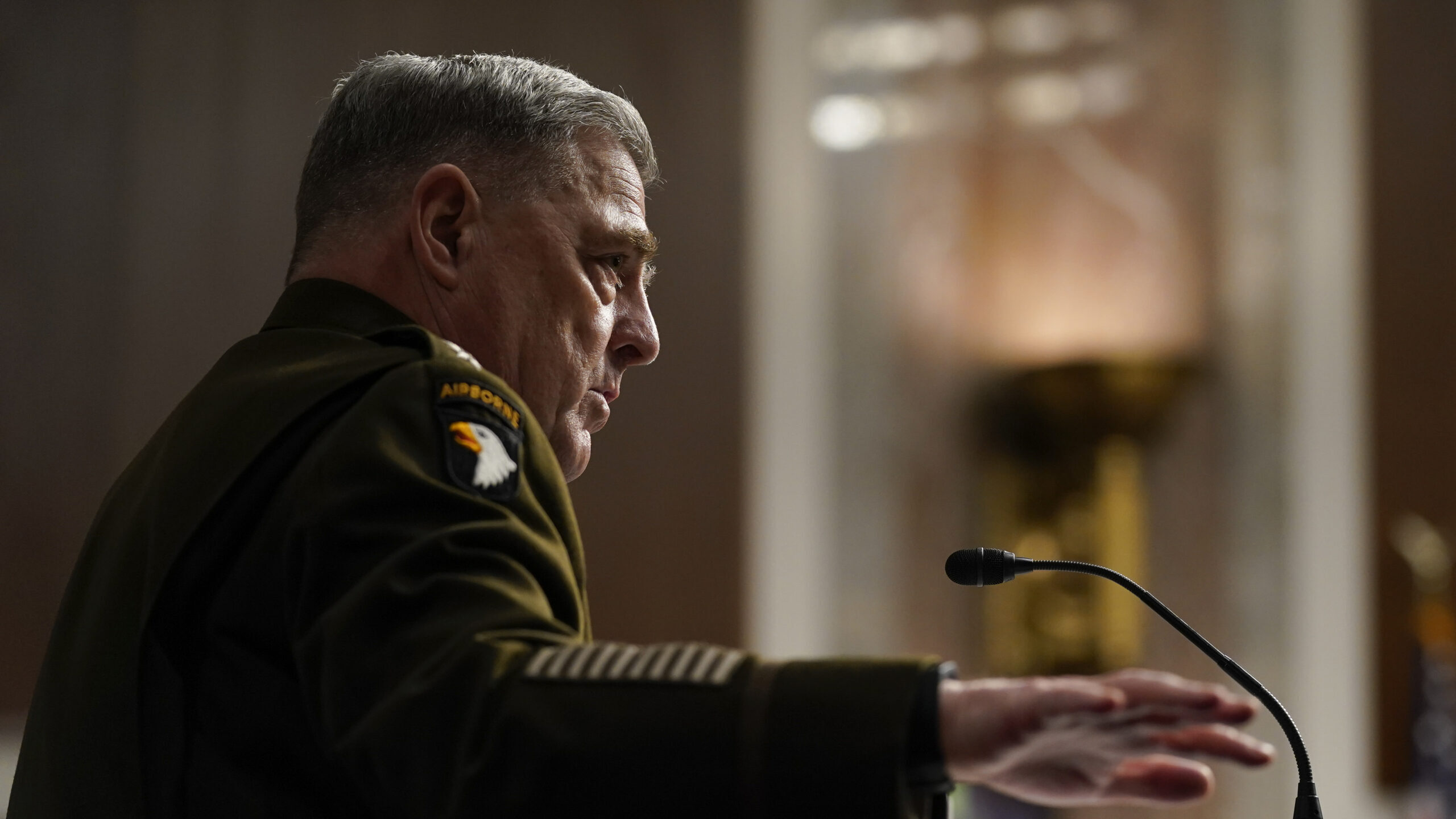COLIN CLARK

WASHINGTON: The Afghan war’s end. It’s harmed relations with America’s allies, who wonder if they can rely on the US as much as they want to. It’s delighted China, which trumpets how America had to withdraw from Afghanistan. It’s given tremendous heartache to veterans, who lost friends and gave so much of themselves to serve. It’s driven Afghans who believed in a democratic state where women could be treated as free human beings to risk their lives to flee to other lands.
Few would disagree that America’s attempt to build a new Afghanistan ended badly, so what lessons did America’s top military leaders learn? What will shape Defense Secretary Lloyd Austin’s and Chairman of the Joint Chiefs Gen. Mark Milley’s — and their successors’ — actions and policies over their terms?
This story is not going to deal with the partisan attacks and defenses that took up much of today’s Senate Armed Services Committee hearing, since readers can find those elsewhere. It’s time to look ahead to the next conflict, because it will occur sooner than anyone wants it to.
Lesson One: Don’t Americanize The War
Apart from the tactical lessons learned about executing airlifts, there are much larger lessons — “a series of strategic lessons to be learned” — Milley made clear to the SASC’s six hour hearing today. Perhaps top of the list: Don’t Americanize the war.
“We learned that in El Salvador and in Colombia, for example,” he said. “We assist and help other countries armies fight in insurgencies, and they were quite effective. But it was their country, their army that bore the burden of all the fighting, and we had very, very few advisors and that was quite effective. Now, every country is different. Every war is different and has to be evaluated on its own merits, but I think those are some key points that are worth thinking about.”
Lesson Two: ‘You’ve Got To Be There’
The United States must also have good visibility into the forces with which it’s working, something Milley hinted at the SASC may have been an important reason the US missed warning signs of the rapid collapse of the Afghan military.
“I think in the case of working with other countries armies, it’s important to have advisors with those units so you can do a holistic assessment of things that are very difficult to measure — the morale factor, leadership, will. I think that’s one key aspect,” Milley said.
America withdrew its advisors from the Afghan army three years ago, Milley noted. While he wouldn’t say categorically that the US missed the warning signs because of their absence, he did say it was a “key factor.”
“When you pull the advisors out of the units, you can never, you no longer can assess things like leadership and well, we can count the planes, trucks and automobiles and cars and machine guns everything else — we can count those from space and all the other kind of Intel assets. But you can’t measure the human heart with a machine. You’ve got to be there,” Milley told the committee.
In his testimony, Austin put some meat on the bones of Milley’s diagnosis that the US lost transparency into the morale of Afghan government forces.
“The fact that the Afghan army that we and our partners trained simply melted away, in many cases without firing a shot — to my surprise, and it would be dishonest to claim otherwise — we need to consider some uncomfortable truth that we didn’t fully comprehend the depth of corruption and poor leadership in the senior ranks, that we didn’t grasp the damaging effect of frequent and unexplained rotations by (Afghan) President Ghani of his commanders,” Austin said grimly.
Lesson Three: Train For The Culture
In addition to poor leadership and corruption, Milley pointed to a classic mistake governments often make when dealing with other governments and cultures.
“I think that one error we may have made over time was we made them too dependent on technology, too dependent on our capabilities. We didn’t take in the cultural aspects perhaps as much as we should have, and we mirror imaged,” he said. For example, contractors were crucial to keeping the Afghan forces moving and fighting. When they were withdrawn, it accelerated the collapse of the tech-dependent Afghan army.
Lesson Four: Watch Conditions On The Ground, Not A Calendar
Finally, Milley reminded his political overseers of a lesson almost every member of the military knows all too well.
“As a matter of professional advice I would advise any leader: don’t put dates certain or end dates; make things conditions-based,” he told the SASC. “That is how I’ve been trained over many, many years.”
President Trump’s Doha agreement with the Taliban committed the US to a May 1, 2021 withdrawal. It also placed conditions on both sides. However, Milley and Austin testified that the Taliban did not adhere to any of their conditions except, largely, the one barring them from attacking American forces. President Biden repeated the error and said the US would withdraw by September 11. And Kabul fell on Aug. 15.
But with all the lessons Milley suggested the US had learned in the aftermath of Afghanistan’s fall to the Taliban, it was Austin’s sometimes anguished testimony that emphasized that the US is still beset with hard questions about its failures after 20 years.
“Did we have the right strategy? Did we have too many strategies? Did we put too much faith in our ability to build effective Afghan institutions in their army and air force, the police force, and government ministries?” he said. “We built a state, Mr. Chairman, but we could not forge a nation.”
No comments:
Post a Comment